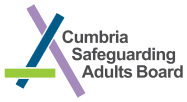Transitional safeguarding
Further to learning identified in the Kate SAR, CSAB in collaboration with Cumbria Safeguarding Children's partnership are facilitating a lunch and learn session to formally launch a Transitional Safeguarding Procedure for children and young adults at risk of exploitation.
Useful resources
Useful resources to support practitioners knowledge and awareness of transitional safeguarding.
What is Transitional Safeguarding and why does it matter?
This short animation developed by Research in Practice, sets out what Transitional Safeguarding is and why it matters. It is intended to be highly accessible, rather than a resource for those who already understand Transitional Safeguarding in more detail.
Camden CSCP have also developed an animation on what it is like for those working with adolescents (10-24 year old's). The film describes what transitional safeguarding is, why it is essential to develop and embed in order to safeguard young people into adulthood.
The NRM and Transitioning to Adulthood: 7 Minute Briefing
The National Working Group (NWG) in partnership with the Children’s Society, Barnardo’s and the West Midlands Violence Reduction Partnership have developed a 7 Minute Briefing for Frontline Practitioners on The NRM and Transitioning into Adulthood to provide practitioners with the knowledge and tools necessary to guide vulnerable children and young people effectively through a pivotal time in their lives.
Bridging the Gap: A knowledge briefing
Bridging the Gap is aimed at all those committed to ensuring high quality social work with young adults, from practitioners and people receiving support through to strategic leaders across local safeguarding partnerships.
Transitional Safeguarding Resources: Local Government Association
This resource has been developed by the Transitional Safeguarding Reference Group, hosted by Partners in Care and Health.
Transitional Safeguarding: A Knowledge Briefing for Healthcare Professionals
This briefing is aimed at all health colleagues involved in safeguarding children and young adults accessing healthcare – from practitioners and people receiving support through to commissioners, strategic leaders, and others with accountability for safeguarding in health services. This briefing will also be useful for those who don’t usually work with young people and/or young adults directly but who nevertheless provide care or support to their family members or carers.
Transitional Safeguarding: Adolescence to adulthood: Strategic briefing (2018)
This publication from Research in Practice is aimed at sector leaders in social care and explores sexual exploitation, gangs, violent crime, domestic violence and abuse, modern slavery and trafficking. It challenges the children’s and adults’ workforce to reflect on established models of safeguarding and identify opportunities for innovation.
Risks, Resilience and Relationships: Safeguarding adolescents into adulthood
This publication from Research in Practice looks at supporting young people to transition to adulthood and safeguarding from harm.
